Homing in
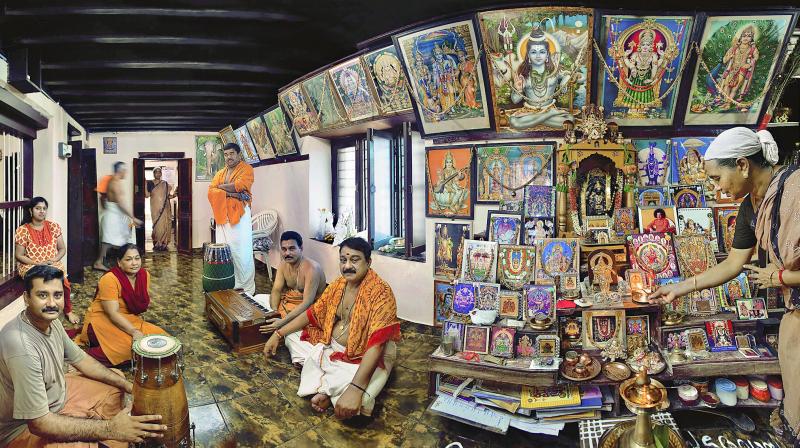
Home is where the heart is — a close look at Amit Pasricha’s images that capture people across the country comfortably settled in their homes validates the point. From a lady sarpanch’s home in Gujarat and the mud house of a villager in Orissa to an antique collector’s residence in Kochi and foldable homes of tribal herdsmen — Pasricha’s recently released book India at Home captures the diverse life of people in the early 21st Century.
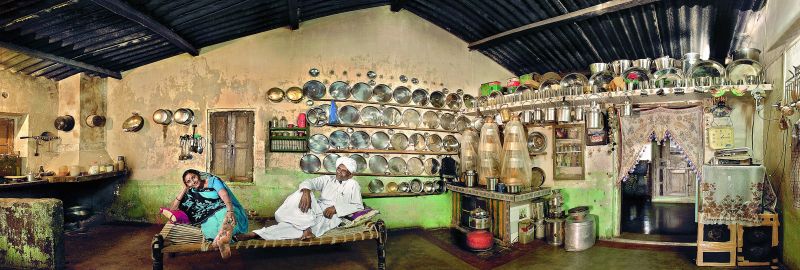 Champaben Prajapati is Ismailpur’s first woman pradhan. In the photograph, she is seen posing with her husband at their home in Karan Ismailpura, Gujarat
Champaben Prajapati is Ismailpur’s first woman pradhan. In the photograph, she is seen posing with her husband at their home in Karan Ismailpura, Gujarat
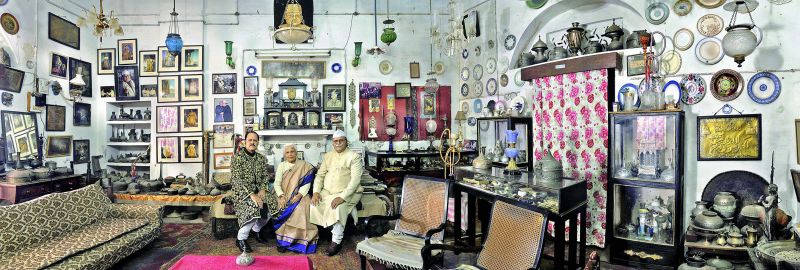 Seated in the drawing-room of Sheeshmahal, the ancestral residence of the Nawabs of Lucknow, are royal descendants Nawab Jafar Mir Abdullah (in the cream sherwani) with his mother Nawab Sarwat Jehan Begum (now deceased), and his youngest brother NawabMasood Abdullah
Seated in the drawing-room of Sheeshmahal, the ancestral residence of the Nawabs of Lucknow, are royal descendants Nawab Jafar Mir Abdullah (in the cream sherwani) with his mother Nawab Sarwat Jehan Begum (now deceased), and his youngest brother NawabMasood Abdullah
“Home is something that signifies warmth and comfort. It is a place where you find people as they are, without any pretence. What better way to present the diversity of the country than to capture people in their natural surroundings,” says the photographer. From the traditional to modern, rural to metropolitan, homes of all kinds are captured in the book. “Every few kilometres speaks of a shift in the culture, the habitat, the aesthetic and the outlook of people,” says Pasricha.
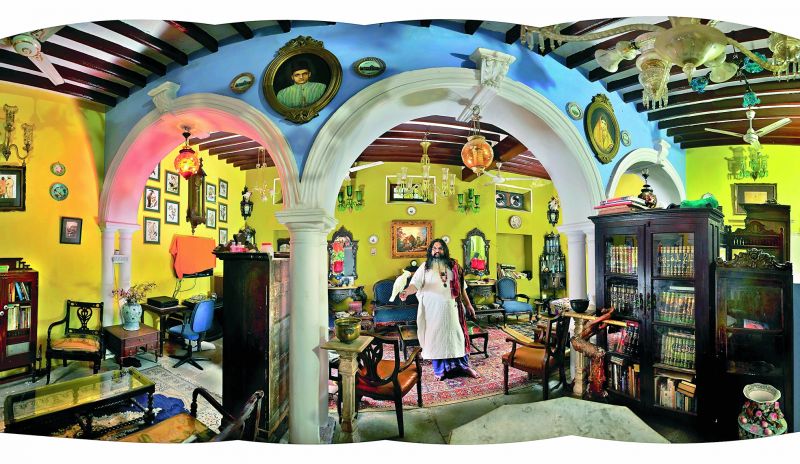 Mohmmed Faisal Ali Shah poses with his pet cockatoo for this portrait at his ancestral home in Hyderabad. He is the custodian, or sajjada-nasheen — a title held by nine generations of Faisal's family — of the Hazrat Yousafain Dargah, a Sufi shrine in Hyderabad.
Mohmmed Faisal Ali Shah poses with his pet cockatoo for this portrait at his ancestral home in Hyderabad. He is the custodian, or sajjada-nasheen — a title held by nine generations of Faisal's family — of the Hazrat Yousafain Dargah, a Sufi shrine in Hyderabad.
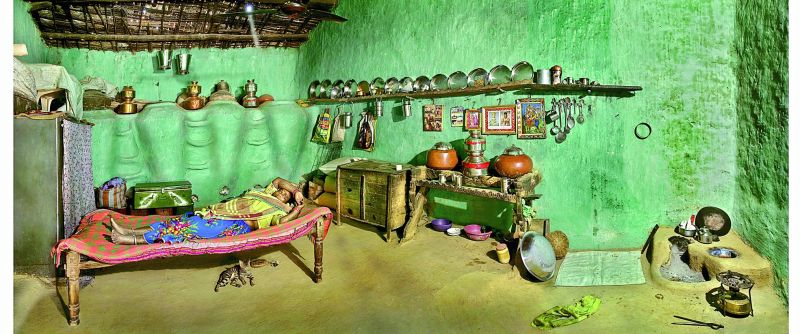 Babiben Koli Patel, 50, stretches out comfortably on her charpai, unbothered by the camera pointed at her. She is a healthcare worker and has had a long day visiting homes in Jambuthal village in the Sanand district, Gujarat.
Babiben Koli Patel, 50, stretches out comfortably on her charpai, unbothered by the camera pointed at her. She is a healthcare worker and has had a long day visiting homes in Jambuthal village in the Sanand district, Gujarat.
The project took over a decade to complete and covered homes spread over 20 states and three union territories. “People do open their doors and are happy to let you in, so, it wasn’t really a problem to convince them, especially in the rural and mid town segment. In the urban arena, there were friends and friends of friends who opened up. It was a documenter documenting the lives that they lived, and what they wanted to project. My only brief to my subjects was — ‘don’t dress up and sit in your own house! Just be yourself.’”
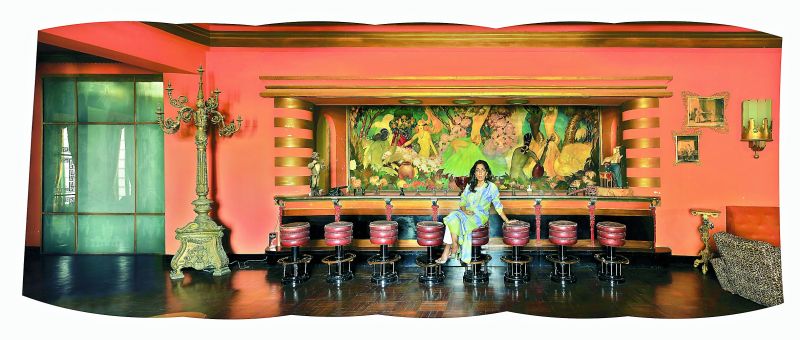 Princess Uma is seen here enthroned on a barstool at her palace in Morvi in the state of Gujarat
Princess Uma is seen here enthroned on a barstool at her palace in Morvi in the state of Gujarat
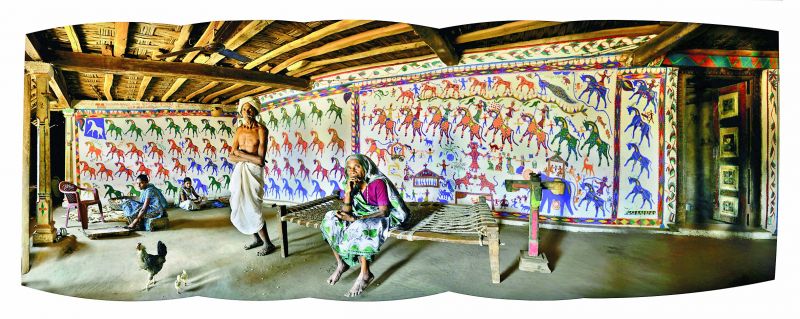 Khimji Bhai Phula Bhai is a Rathwa Adivasi — a tribe that inhabit the Chhota Udaipur hills of eastern Gujarat. He is pictured here with his wife and two granddaughters at their home in Jambughoda Taluka, Gujarat.
Khimji Bhai Phula Bhai is a Rathwa Adivasi — a tribe that inhabit the Chhota Udaipur hills of eastern Gujarat. He is pictured here with his wife and two granddaughters at their home in Jambughoda Taluka, Gujarat.
Through these intimate portraits, it is possible to interpret their lives: Their occupations, tastes, beliefs, status, etc. that they value. “Several of these homes changed over the years and by the time the book came out there were instances of people moving away to different cities, and some of them were no longer alive,” he says. The book, however, is not about splendid houses or architecture.
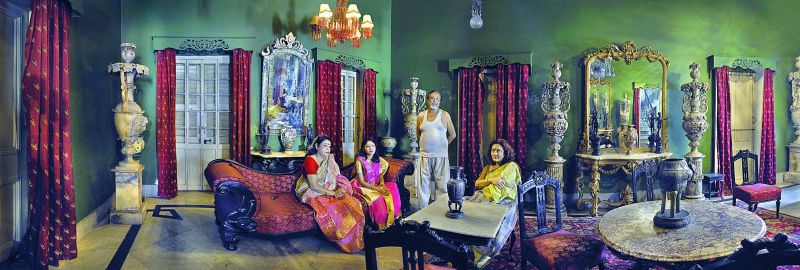 This picture is taken in the formal drawing room of the Sardar family of Kolkata in their century old mansion, Sukhtara.
This picture is taken in the formal drawing room of the Sardar family of Kolkata in their century old mansion, Sukhtara.
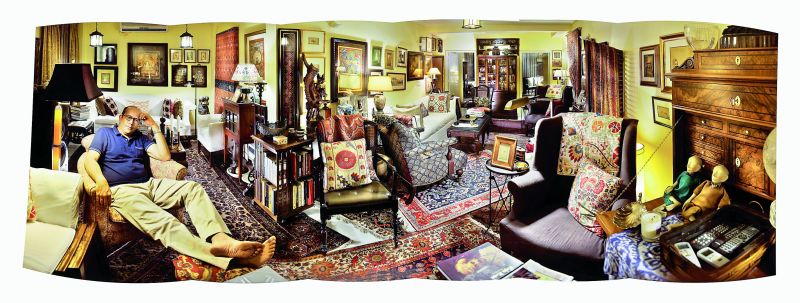 After a hard day’s work, Arun Tandon, an IT professional-turned-furniture manufacturer, puts his feet up at his elegantly furnished apartment in Gurgaon.
After a hard day’s work, Arun Tandon, an IT professional-turned-furniture manufacturer, puts his feet up at his elegantly furnished apartment in Gurgaon.
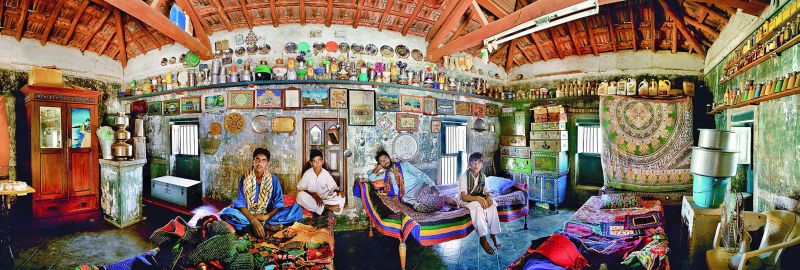 Members of the forty-member Adhikari family pose happily for this photograph taken in the backyard of their common family house in Haripur village, Orissa.
Members of the forty-member Adhikari family pose happily for this photograph taken in the backyard of their common family house in Haripur village, Orissa.
He asserts, “I didn’t have any set list of the ‘kinds of homes’ that I wanted to showcase. Instead, it is an interesting collection of portraits of people and their relationship with their homes filled with the objects they associate with or objects handed down by generations and that have a sense of nostalgia. In the pictures, you can see people dressed in their regular clothes, sitting comfortably on their beds or favourite chairs or sofas at their favourite spots.”

